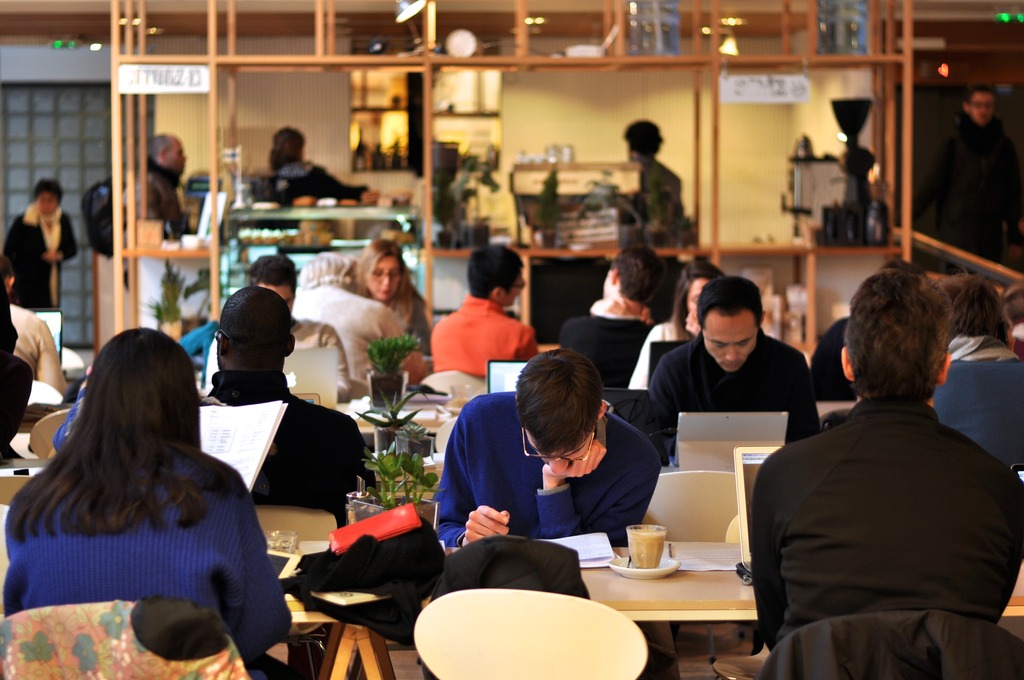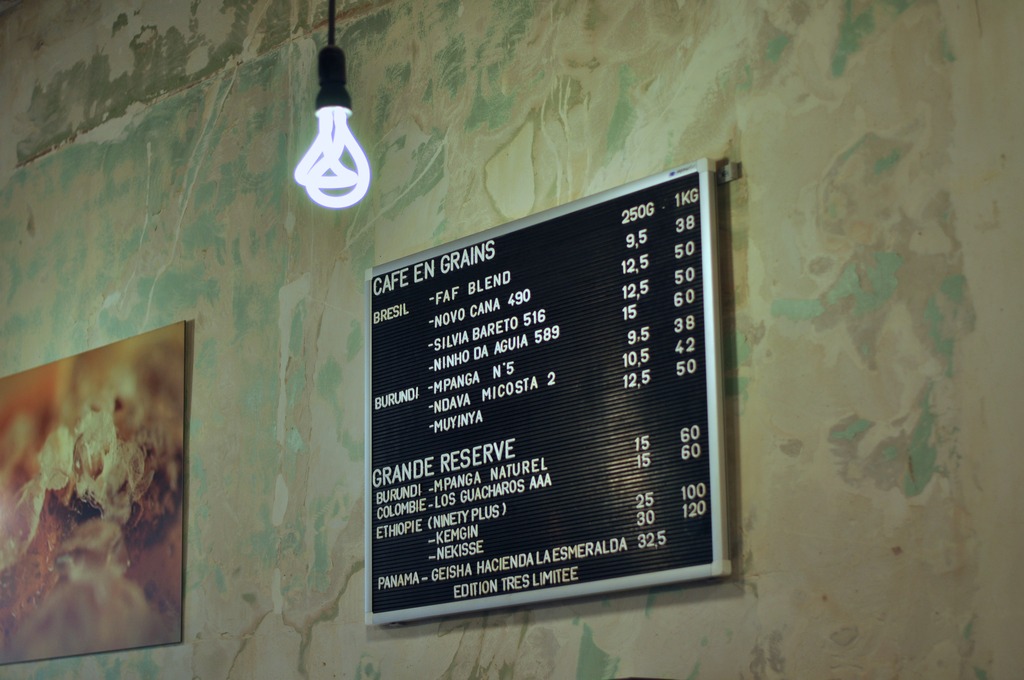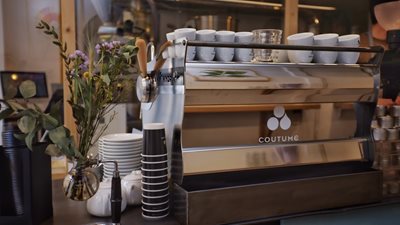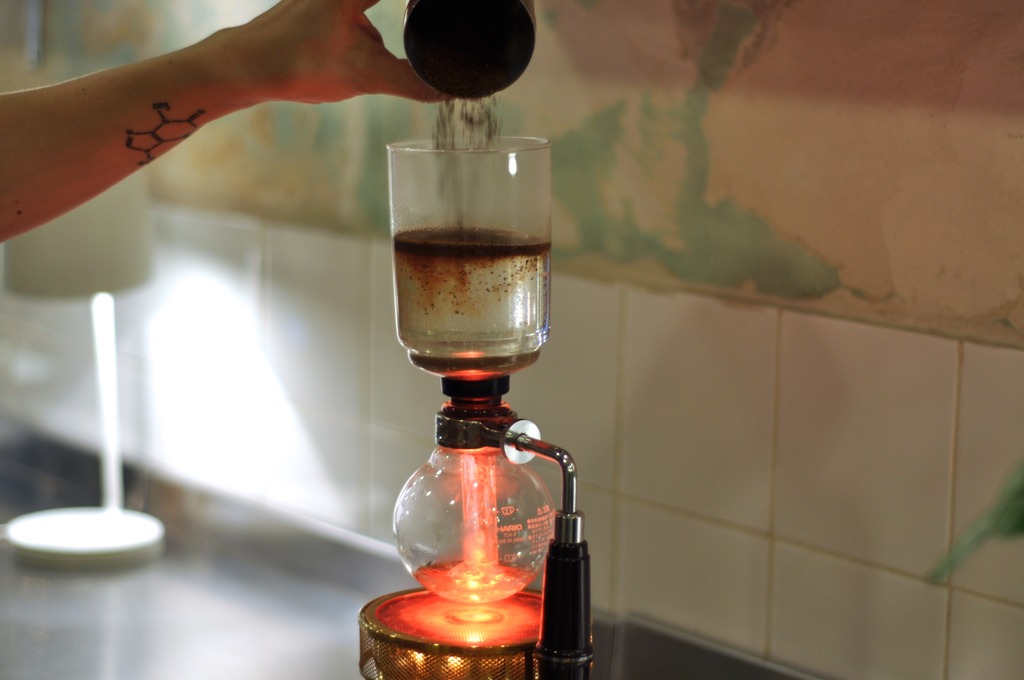Co-founder of Paris-based independent Coutume, Tom Clark, talks to World Coffee Portal about his role in the evolution of France’s burgeoning speciality coffee scene. By Tobias Pearce
It’s almost impossible to talk about Paris without mentioning its legendary bistros and cafés. From icons such as Café de Flore and Les Deux Magots to the estimated 7,000 neighbourhood pitstops for breakfast, lunch and dinner, café culture in the City of Love is big business. In fact, France has the one of the strongest traditions of eating and drinking out-of-home in Europe, with Allegra forecasting 5.7% p.a. coffee shop market growth over the next five years.
But despite a vibrant café industry, French speciality coffee is relatively immature compared to its European counterparts. Given the country’s penchant for coinerssourism, the historic lack of craft roasters, barista skills and consumer palate for speciality coffee is surprising. But this all changed a few years ago as influential independents began carving a small but lucrative niche for speciality coffee.
Founded in 2005, the La Caféothèque’s focus on ‘les méthodes douces’ (manual brewing) and origin beans was revolutionary. Thoroughly modern Café Kitsuné has four Paris outlets an offers range of single origin coffees, famous matcha lattes and its own clothing line. Reflecting the coffee 'terroir' movement, fellow Parisian minimalist Télescope Café is set up as ‘wine cellar’ of coffee roasters. Indicative of their success, Allegra research shows nearly half of consumers surveyed in France regarded speciality growth as the most important coffee shop trend in 2017.

Coutume Babylone. Photo credit: Franck Bessiere/Hans Lucas
Opening its first site 2011, Coutume, meaning ‘custom’, is a fitting name for a café reshaping how Parisians order ‘un café’. Today they operate two cafés in Paris, licence sites in Switzerland and Japan and plan further expansion in 2018. Over seven years, the award-winning coffee shop has been a major catalyst in the evolution of the speciality scene. The market is thriving – but this wasn’t always the case according to co-founder, Tom Clark.
I was blown away by the fact that the French market hadn’t caught up with the speciality movement that was brewing in Australia
As a university exchange law student in 2006, Paris’ legendary café scene was love at first sight for Tom. “I was swept up in the romanticism of French hospitality,” he tells World Coffee Portal. “Coming from a new-world country like Australia, all the traditions were extremely exciting. I was expecting to find the best of both worlds – the romance and history – but also quality in the cup. I was a bit of a coffee snob,” he laughs.
But there was a catch. Tom says that while he was thrilled when it came to French bread, pastries, cheese and wine, the coffee left much to be desired. “I was blown away by the fact that the French market hadn’t caught up with the speciality movement that was brewing in Australia. Coffee was viewed as commodity and bistros were all about speed, getting orders and making espresso as quickly as possible.”
After heated exchanges with local barmen about the importance of tamping and proper extraction methods, Tom realised he was on to a huge gap in the coffee market. “There wasn’t a lack of will – there was just no knowledge,” he says. “There was absolutely no reason for the French not to appreciate speciality coffee.”
Wholesale changes
After a brief hiatus in his native Australia, Tom returned to Paris to set up his own speciality coffee venture. “I bought a couple of surf boards and planned to convert them into a street stall, but I didn’t count on the fact that getting rental space in public realms was absolutely impossible,” he explains. Paris’ strict trading laws may have put the tamp Tom’s street vending hopes, but undeterred, he made his first foray into Paris’ wholesale market.
“Back then they were selling mostly 80% commodity Arabica and 20% commodity Robusta,” says Tom explaining his first encounters with major suppliers. “I kept seeing the same brasserie menus everywhere and it dawned on me everyone was getting produce from the same mass market. You’d sit and enjoy the view from terrace – but the food and drinks were just an accessory to the experience.”
We took on 3-4 students in those first couple of years and now they’re roasting very successfully in Aix and Montpellier
With little more than a hand grinder and some carefully chosen beans, Tom embarked on a mission to convert local restaurants and brasseries to speciality coffee one tasting at a time. “At first I hosted cuppings and tastings once a week in my little apartment. I went out to restaurants and hotels when people tried speciality coffee they were blown away – every tasting went really well.”

Coutume's single origin coffee menu. Photo credit: Franck Bessiere/Hans Lucas
Through these successes, Tom and business partner, Antoine Nétien, developed a holistic programme to educate wholesale customers on origin, brewing and equipment. “We had a very open approach to training, whenever customers needed help with anything we were there – we ran their coffee service as if it was our own where possible. We had to create structure and set rules but give clients responsibility as well – otherwise they’d assume we were there to clean the machines and do everything for them.”
Today Coutume has a fully-fledged roasting and barista programme. Every wholesale account receives compulsory training, which Tom says has created a “small army” of baristas. “They get trained by us and often open their own place one or two years later. They’ll then train more baristas and it snowballs,” he says, charting the momentum that has built behind speciality coffee. “We took on 3-4 students in those first couple of years and now they’re roasting very successfully in Aix and Montpellier,” he adds.
Winning hearts and minds
Opening in 2011, Coutume faced the challenge of convincing locals to part with entrenched coffee traditions. Tom jokes that locating to a historic neighbourhood in the 7th arrondissement might not have been the ideal base for his coffee revolution. But as he explains, customers were won over by the café’s sincere and meticulous approach to coffee education.
Little by little we started getting people coming back and buying our coffee – we built a grassroots movement
“We wanted to be diplomatic and viewed with respect and curiosity,” says Tom describing the café’s tentative first year. “We didn’t want to come in with a snobby attitude looking down on people for not understanding. We listened to customers when they complained our espressos were too short or too strong. Then we’d do a simple experiment to show them the poor outcome of a running a shot for 45 seconds.

“Little by little we started getting people coming back and buying our coffee. Restaurants were contacting us – we built a grassroots movement.”
As Coutume staged its quiet coffee revolution from the ornate facades of Rue de Babylone, Paris’ speciality roasting scene was growing fast. “The market has really opened up, we’ve had a really positive impact but we’re not alone,” says Tom. “There were just a couple of speciality roasters in 2011, now there’s probably a dozen decent
roasters across France doing really good jobs.”
Not only did Coutume train three of these (La Fabrique du Café, Limoges, L’Alchimist, Bordeaux and Bun, Montpellier), they were also the first to officially register ‘barista’ as a job title with the Paris employment office. “There was ‘barman’, but the notion of having a coffee specialist was non-existent, so we had to create new category,” he explains.
A grassroots movement
With its foot firmly in the coffee market door, Tom says the speciality scene is not just driving expansion among independents, but innovation among branded chains too. Even some airport kiosks, he notes, now use semi-automatic espresso machines and on-demand grinders.
I’ve not seen a market move more dramatically in seven years – the whole culture has shifted
“The artisan market is influencing big players now, who are proposing 100% arabica and even talking about origin,” he says. “We see this effect in domestic consumption too. People are steering away from pods and buying bean-to-cup machines and filter systems – we sell a huge number of hand-pour accessories.”
Tom says the city’s scene has grown from 2-3 speciality coffee shops in 2011 to more than 100 today. “I’ve not seen a market move more dramatically in seven years – the whole culture has shifted,” he enthuses.
With far more awareness of speciality coffee in France, Tom says it’s not just consumers seeking higher quality products. The same establishments once reliant on a few dominant wholesalers now actively seek a higher quality product.
“It’s a real global movement and we’re seeing artisanal products being purchased by restaurants, bistros and even hotels. We were recently approached by a major hotel to supply coffee, which was revolutionary because in the past you’d have to fight tooth and nail with huge industry players.”

Experimenting with new tastes: siphon brewing at Coutume. Photo credit: Franck Bessiere/Hans Lucas
Learning new customs
Aspiring to export their coffee customs further afield, in 2013 Coutume licensed its first Japanese outlet in Tokyo. Tom said the move was influenced by a fascination of the culture, which he says was very receptive to artisan coffee. “We saw there was huge respect for the product, the art and the origin. Huge curiosity,” he says.
A Swiss outlet followed in 2017, with Tom revealing plans to establish a local roaster in 2019. “Being in downtown Geneva was very similar to our experience opening in Paris,” explains Tom. “It’s very conservative and was a quite a neglected market.”
With speciality coffee a hit among a once reluctant public, Coutume is also expanding closer to home. In 2017, the Coutumes les Ateliers roastery opened in Paris’ 10th arrondissement, hosting barista training and public workshops. By mid-2018 they’ll have another outlet in La Defence, with a permanent site at Paris’ Finnish Cultural centre (Instituutti) following a successful pop-up.
“It’s early days,” says Tom, “but we see the future in places like Bordeaux, Lille, Lyon, Nice, Côte d’Azur. There’s huge potential in all these areas.
“Even if we start wholesaling nationally, or even internationally we’ll keep telling the speciality coffee story. We feel if we can do it in Paris in 2011, we can do it pretty much anywhere.”